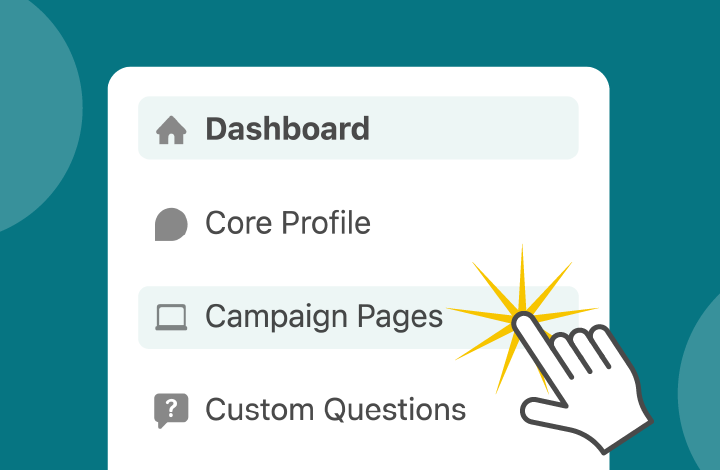California’s frustrating shakeup of online fundraising

A push for transparency and accountability in online charitable fundraising: that is what compelled the California State Assembly to pass Assembly Bill No. 488 (AB-488), a new law governing how nonprofits conduct online fundraising.
Unfortunately, while commendable in principle, AB-488 has in practice been upsetting, destabilizing and dispiriting to affected nonprofits and all fundraising platforms attempting to follow the law, but sometimes running afoul of misunderstanding, tight deadlines and bureaucracy.
And today, with considerable concern for our member nonprofits, we have been required by the new law to begin disabling the fundraising pages of nonprofits identified as “delinquent” by the California Attorney General’s Office. (Affected nonprofits receive advance email warnings from us and have notifications posted on the dashboard of their Nonprofit Admin Portal.)
Summary background information
The two most important issues created by AB-488 are:
- the legal restrictions imposed on nonprofits identified as “delinquent” by the California Attorney General’s Office
- the requirements that charitable fundraising platforms like Give Lively (and Meta/Facebook, Network for Good and all others) restrict access to fundraising tools by delinquent charities, even to nonprofits headquartered outside the state but registered in California (in the present or at any time in the past).
If you were affected, have you done the following?
* Double-checked your nonprofit's California status through California’s Registry Search Tool to understand why your organization is marked "delinquent."
* Contacted the California Attorney General’s Office or consulted with a legal/tax professional for guidance on resolving your nonprofit's delinquency issues.
* Read more about all of this in our AB-488 primer.
Shared frustration
Over the last week, Give Lively has heard from nonprofits working to satisfy California's requirements and remedy their delinquency.
We empathize with our member nonprofits. This has been deeply frustrating for all involved because California's rollout of AB-488 has not been smooth. The California Attorney General’s Office didn't publish finalized rules on how to implement the 2023 law until March 26, 2024, followed by its apparently incomplete outreach to nonprofits identified as delinquent, insufficient grace periods for nonprofits attempting to remedy their delinquency and little time afforded to fundraising platforms to prepare. We launched our outreach and action protocols, adhering to California's requirements for alerting nonprofits, on June 12, 2024.
To be clear, nonprofits may be deemed delinquent for legitimate reasons, and de-platforming truly delinquent organizations may serve a public good; however, as far as we can tell, many nonprofits are facing delinquency due to simple clerical problems, like a piece of mail being returned or white-out on a check that causes its rejection.
To share your sentiments about the law, please direct them to the Attorney General’s Office and the California State Legislature. Regulators review all feedback and then may adjust/amend regulations to find a way forward that works for everyone.
California's slow processing
By far the most common concern voiced to us by our member nonprofits is how long it is taking the California Attorney General’s Office to update its files and remove nonprofits from its "May Not Operate or Solicit for Charitable Purposes” list.
California allows charitable fundraising platforms like Give Lively to grant a five-day grace period to delinquent nonprofits before disabling their fundraising pages. This grace period begins when the platform discovers that a nonprofit is delinquent. However, California allows itself 30 to 60 days to process the materials needed to resolve a nonprofit’s delinquency, a potentially devastating time difference that could put a nonprofit's work in jeopardy.
California also isn't publicly sharing whether it is prioritizing the resolution of simple clerical issues over other more serious cases, offers no transparency into its backlog and doesn't respond to requests for updates on status.
Some nonprofits that heard directly from California starting in March/April are still awaiting resolution. Others that never (or haven’t yet) heard from California, instead learning from us last week of their California-delinquent status, face a daunting delay.
"The State website said that it will take them up to 90 days to update their records – clearly a non-profit can't function for 3 months without a donation portal," remarked one nonprofit.
"[California] only accepts renewals via mail and advised that it will be several weeks before they process them," shared another.
"It is impossible to speak with an actual person in their office. Which is to say, nothing is happening quickly or efficiently," commented a third.
We wish we could do more
Unfortunately, we have no influence with the California Attorney General’s Office and no ability to do anything but abide by the data it publishes. We are as beholden to the law as nonprofits are. And just as this law applies to many nonprofits that are not headquartered in California, so too are we, a New York-based company, required to apply the California law, without exception and with no recourse to time extensions, to all nonprofits listed as delinquent by the California Attorney General's Office.
Even if a nonprofit has diligently submitted all materials to California (and has received acknowledgment of fulfilled status requirements), Give Lively must, by law, still wait for California's data to show a nonprofit as "current."
When a nonprofit is back in good standing
Our system checks California's data every night. As soon as we confirm a nonprofit is back in good standing (aka "current"), we automatically and promptly:
- alert the nonprofit by email of the removal of the delinquency label and return to good standing
- remove the warning from the Nonprofit Admin Portal
- re-enable all fundraising pages and unpause recurring donations.
Note that nonprofits are still able to access all pages of the Nonprofit Admin Portal (including data) even when listed as delinquent by California.
We stand ready to respond if your organization's status is newly updated to "current" in California’s Registry Search Tool and our system hasn’t registered this yet. Contact us with news of the change.
We urge you to share your sentiments about the law with the Attorney General’s Office and the California State Legislature. Regulators review all feedback and then may adjust/amend regulations to find a way forward that works for everyone.








.svg)
.svg)
.svg)
.svg)














